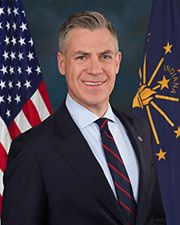Defund NPR Act
3/23/2025, 11:19 AMCongress
119
Number
S - 746
Introduced on
2025-02-26
# Amendments
0
Sponsors

Status of Legislation
Bill Introduced
Introduced to House
House to Vote
Introduced to Senate
Senate to Vote
Purpose and Summary
Read twice and referred to the Committee on Commerce, Science, and Transportation.
Bill 119 s 746, also known as the "A bill to prohibit Federal funding for National Public Radio, and for other purposes," aims to stop the allocation of Federal funds to National Public Radio (NPR). The bill was introduced in the US Congress with the intention of cutting off government support for NPR, which is a non-profit media organization that provides news and cultural programming to the public.
The bill seeks to prevent taxpayer dollars from being used to support NPR, arguing that the organization should rely on private funding sources instead. Proponents of the bill argue that NPR has a liberal bias in its reporting and that it should not receive government funding.
If passed, the bill would have significant implications for NPR, as it currently receives a portion of its funding from the Corporation for Public Broadcasting, which is a government-funded entity. The bill would force NPR to seek alternative sources of funding in order to continue operating. Opponents of the bill argue that NPR provides valuable and independent journalism to the public, and that cutting off its funding would limit access to important news and information. They also argue that NPR serves as a vital source of news and cultural programming for underserved communities. Overall, Bill 119 s 746 is a controversial piece of legislation that has sparked debate over the role of government funding in supporting media organizations like NPR. It remains to be seen whether the bill will gain enough support to pass in Congress.
The bill seeks to prevent taxpayer dollars from being used to support NPR, arguing that the organization should rely on private funding sources instead. Proponents of the bill argue that NPR has a liberal bias in its reporting and that it should not receive government funding.
If passed, the bill would have significant implications for NPR, as it currently receives a portion of its funding from the Corporation for Public Broadcasting, which is a government-funded entity. The bill would force NPR to seek alternative sources of funding in order to continue operating. Opponents of the bill argue that NPR provides valuable and independent journalism to the public, and that cutting off its funding would limit access to important news and information. They also argue that NPR serves as a vital source of news and cultural programming for underserved communities. Overall, Bill 119 s 746 is a controversial piece of legislation that has sparked debate over the role of government funding in supporting media organizations like NPR. It remains to be seen whether the bill will gain enough support to pass in Congress.
Alternative Names
Official Title as IntroducedA bill to prohibit Federal funding for National Public Radio, and for other purposes.
Display TitleA bill to prohibit Federal funding for National Public Radio, and for other purposes.
Official Title as IntroducedA bill to prohibit Federal funding for National Public Radio, and for other purposes.
Policy Areas
Science, Technology, Communications
Comments
Most relevant
Recent Activity
Latest Action2/26/2025
Read twice and referred to the Committee on Commerce, Science, and Transportation.